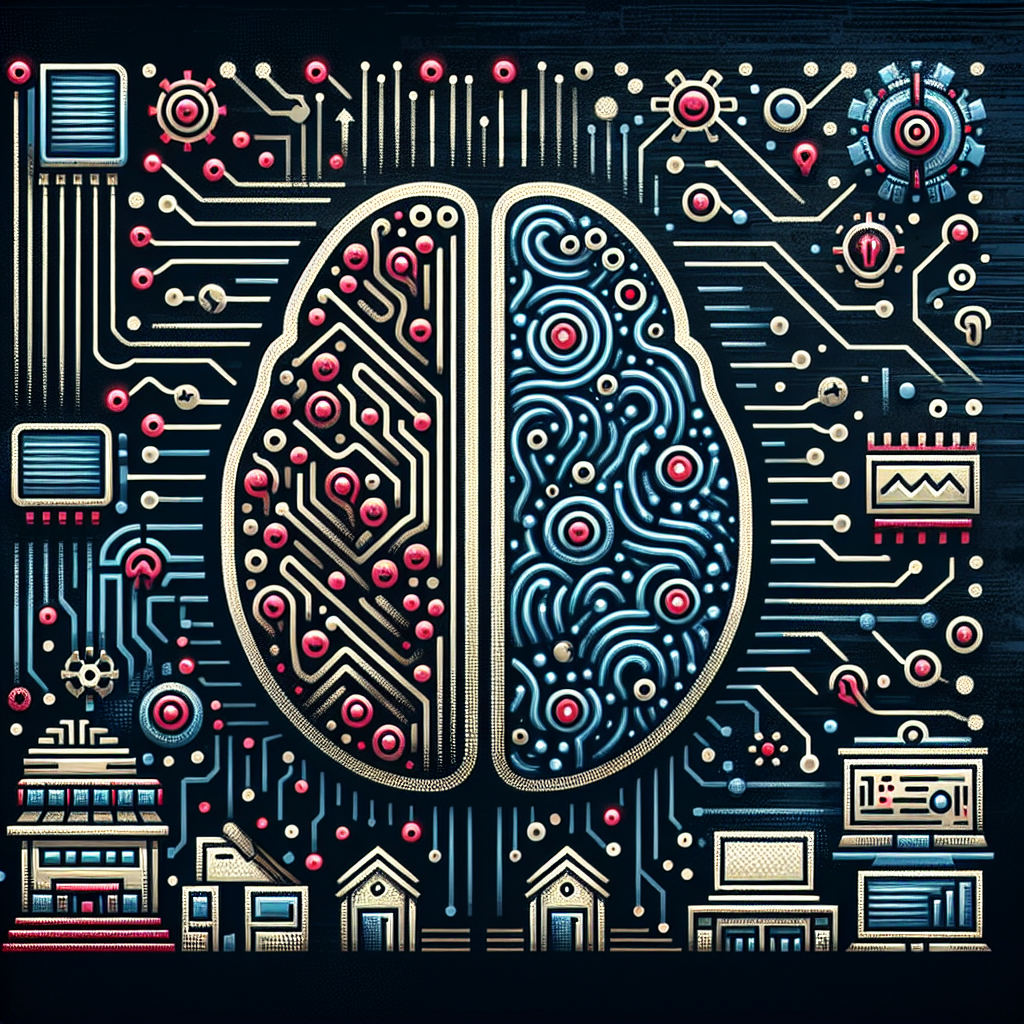Unleashing the Power of AGI: How It’s Transforming the Way We Work and Live
Artificial General Intelligence (AGI) has long been a dream of science fiction, promising a future where machines can think, learn, and adapt just like humans. While we are not quite there yet, recent advancements in machine learning and neural networks have brought us closer to this reality than ever before. AGI has the potential to revolutionize the way we work and live, transforming industries, improving efficiency, and opening up new possibilities that were previously unimaginable. In this article, we will explore the power of AGI and how it is shaping the future of work and daily life.
What is AGI?
AGI refers to a type of artificial intelligence that has the ability to understand, learn, and apply knowledge in a way that is similar to human intelligence. Unlike narrow AI, which is designed for specific tasks, AGI has the capacity to perform a wide range of tasks and adapt to new situations without the need for human intervention. While AGI is still in its infancy, researchers and developers are making rapid progress in creating more advanced and capable systems.
How is AGI Transforming the Way We Work?
AGI has the potential to revolutionize the workplace in a number of ways. One of the most significant impacts of AGI is its ability to automate tasks that were previously thought to be beyond the capabilities of machines. This can help increase efficiency, reduce costs, and free up human workers to focus on more complex and creative tasks. For example, AGI-powered systems can be used to analyze large amounts of data, make predictions, and optimize processes in real-time, leading to better decision-making and improved outcomes.
AGI can also enhance collaboration between humans and machines, creating a more symbiotic relationship where each can leverage the strengths of the other. For example, AGI-powered systems can assist workers by providing real-time insights and recommendations, helping them to make more informed decisions and solve complex problems more quickly. This can lead to increased productivity, higher job satisfaction, and ultimately, better business results.
In addition to improving efficiency and collaboration, AGI can also enable new ways of working that were previously impossible. For example, AGI-powered systems can be used to create personalized experiences for customers, automate repetitive tasks, and even generate new ideas and concepts. This can help businesses to innovate more quickly, adapt to changing market conditions, and stay ahead of the competition.
How is AGI Transforming Daily Life?
AGI is not just transforming the way we work, but also the way we live. From personalized recommendations to autonomous vehicles, AGI is already shaping our daily lives in ways that were previously unimaginable. For example, AGI-powered systems can be used to provide personalized health recommendations, optimize energy consumption in smart homes, and even create personalized entertainment experiences. This can lead to a more convenient, efficient, and personalized way of living.
AGI can also help address some of the biggest challenges facing society today, such as climate change, healthcare, and education. For example, AGI-powered systems can be used to analyze climate data, predict natural disasters, and develop strategies to mitigate their impact. In healthcare, AGI can help doctors diagnose diseases more accurately, recommend personalized treatment plans, and even develop new drugs and therapies. In education, AGI can be used to create personalized learning experiences for students, adapt to their individual needs, and provide real-time feedback and support.
While the potential of AGI is vast, it also raises important ethical and societal questions that need to be addressed. For example, how do we ensure that AGI is used responsibly and ethically? How do we protect against bias and discrimination in AGI systems? How do we ensure that AGI benefits everyone, not just a select few? These are complex questions that require careful consideration and thoughtful solutions.
FAQs
1. What is the difference between AGI and narrow AI?
AGI refers to artificial intelligence that has the ability to understand, learn, and apply knowledge in a way that is similar to human intelligence. Narrow AI, on the other hand, is designed for specific tasks and lacks the general intelligence and adaptability of AGI.
2. How close are we to achieving AGI?
While we have made significant progress in the field of artificial intelligence, we are still far from achieving true AGI. Researchers and developers are working on creating more advanced and capable systems, but it is difficult to predict when AGI will become a reality.
3. What are some examples of AGI in action?
Some examples of AGI in action include self-driving cars, personalized recommendations on streaming platforms, and virtual assistants like Siri and Alexa. These systems demonstrate the potential of AGI to transform the way we live and work.
4. What are the ethical implications of AGI?
AGI raises important ethical questions, such as how to ensure that it is used responsibly and ethically, how to protect against bias and discrimination, and how to ensure that it benefits everyone. These are complex issues that require careful consideration and thoughtful solutions.
5. How will AGI impact the job market?
AGI has the potential to automate many tasks that are currently performed by humans, leading to job displacement in some industries. However, it can also create new opportunities for skilled workers to collaborate with AGI systems and perform more complex and creative tasks. Overall, the impact of AGI on the job market is still uncertain and will depend on how it is implemented and regulated.
In conclusion, AGI has the potential to revolutionize the way we work and live, transforming industries, improving efficiency, and opening up new possibilities that were previously unimaginable. While the road to achieving true AGI is still long and uncertain, the progress we have made so far is promising. By harnessing the power of AGI responsibly and ethically, we can create a future that is more efficient, collaborative, and innovative for all.

